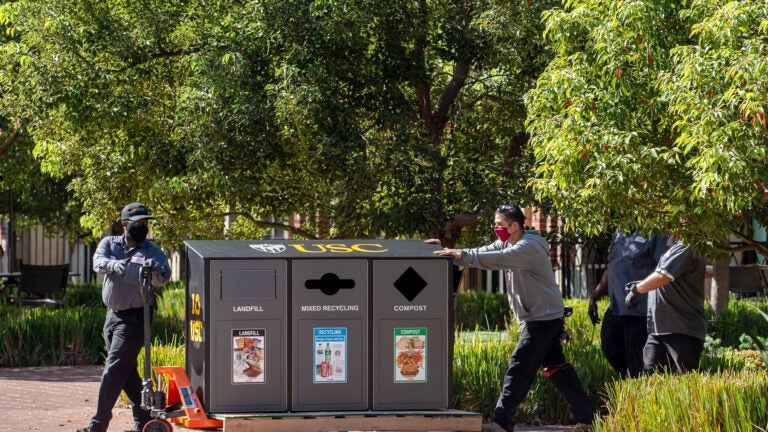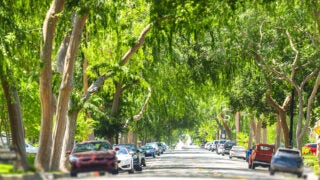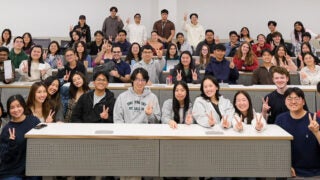
USC workers install no-touch recycling stations at USC Village. (USC Photo/Gus Ruelas)
To help reach zero waste, USC invests in recycling
One bin does not fit all, which is why new sorting stations on USC campuses will keep materials separate from the start.
Recycling is a dirty business. Leftover liquids get sticky and drip onto other clean materials, rendering everything garbage. A pizza box with cheese stuck to it can’t be reclaimed, even if it has a recycling logo. Signs and symbols can be confusing, leaving some people to toss whatever they have into the nearest receptacle.
Single-stream recycling, with a green or blue bin next to a garbage can, has been the norm for three decades. There’s a push to replace some of those with new multiport recycling stations as part of USC’s first zero waste pilot.
The new bins allow for presorted recycling, with clear signs to indicate what goes where. Black is for garbage. Blue takes clean, dry recyclable items like empty cans, cups and bottles — the operative word being “empty.” All eight of the new stations offer a sink for leftover soda, coffee and water.
Multiport recycling stations accommodate a green-flagged compost bin as well. Nearly half of landfill trash produced by the university — 43% — is food waste that could be composted.
Eight of the new stations are open in popular areas like Pappas Quad on the Health Sciences Campus and at USC Village. At about $2,500 each, they represent a considerable investment in sustainability.
Presorting — also known as clean-stream, dual-stream or source-separated recycling — increases the likelihood that materials will come out on the right end of the process.
The pilot will help move the university toward its goal of zero waste by 2028. Zero waste is defined as 90% or more diverted from landfills. While that goal has been achieved during football season at the Los Angeles Memorial Coliseum, USC’s overall waste diversion rate is 27%.
Last year, over 18,000 pounds of waste were diverted from landfills at the university’s four zero waste events. USC also added more than 400 waste-diversion recycling bins, indoors and out, during the 2019-2020 academic year.



